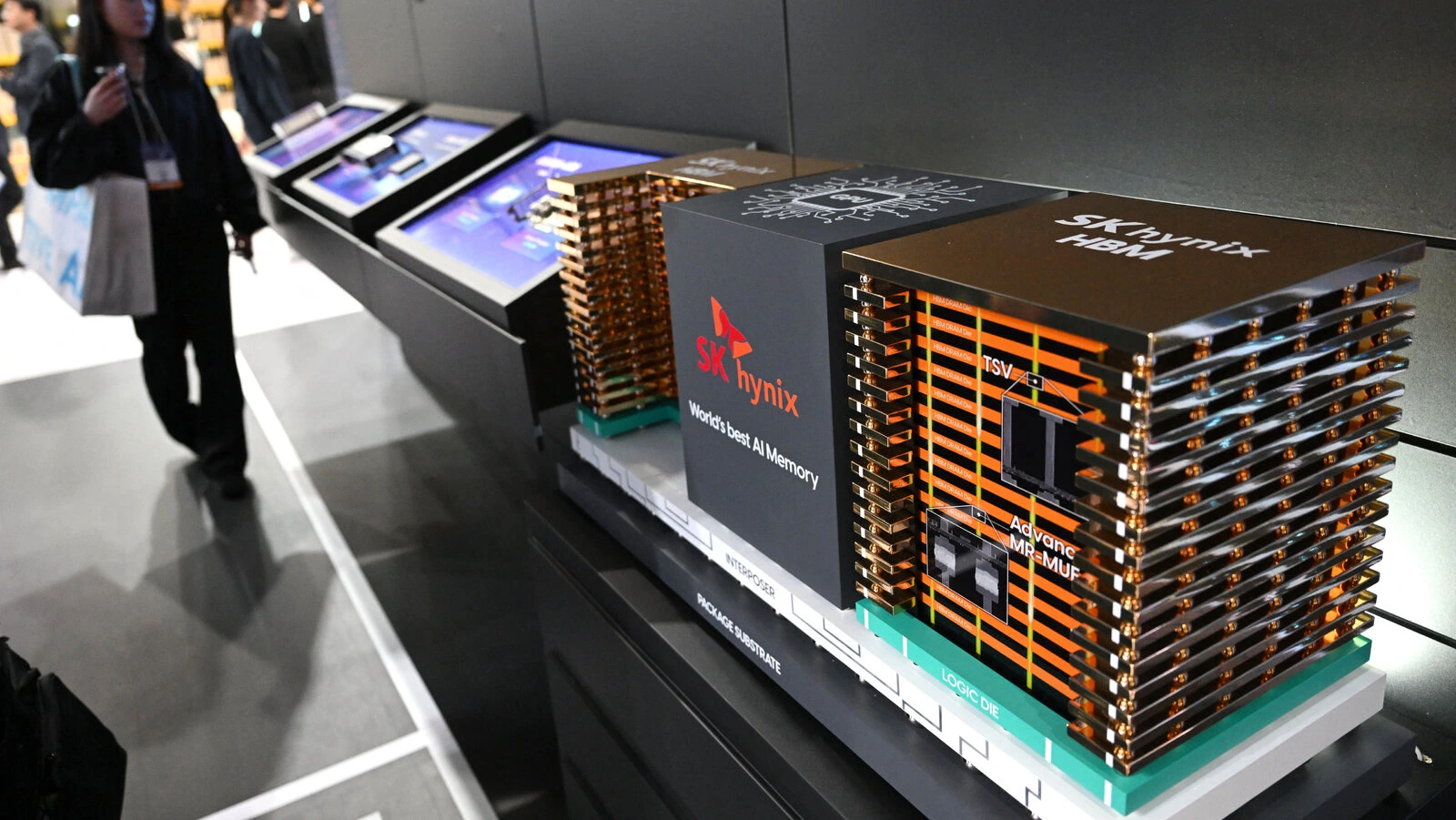In a major escalation of US trade and technology policy, President Donald Trump has set his sights on South Korean chipmakers, Samsung Electronics and SK Hynix, tightening restrictions on their ability to operate in China.
The move comes as Washington seeks to wall off Beijing from advanced semiconductor technology, deepening both economic and diplomatic tensions. The Commerce Department announced that it will revoke prior authorizations that allowed Samsung and SK Hynix to ship critical semiconductor machinery to their Chinese factories.
From now on, both firms will need to secure individual licenses from the Trump administration before they can access US equipment. This marks a dramatic reversal from the Biden administration, which in 2023 granted temporary waivers for the South Korean chipmakers to continue supplying and maintaining their Chinese plants.
For Seoul, the sudden change is not just an economic hurdle but also a political challenge, testing the delicate balance between its largest security ally, the US and its largest trading partner, China.
Why South Korean Chipmakers Matter
Samsung and SK Hynix together control nearly 70% of the global memory chip market. These chips are the backbone of smartphones, cloud computing, and artificial intelligence systems.
Their factories in China especially Samsung’s plant in Xi’an and SK Hynix’s facilities in Wuxi play an essential role in the global supply chain. An industry insider in Seoul put it bluntly, You cannot talk about the future of AI, electric vehicles, or data storage without Samsung and SK Hynix.
Restricting their China operations has ripple effects for every tech company in the world. This is why Washington’s restrictions are not just about targeting Beijing they are about reshaping the entire architecture of global technology.
The decision mirrors the US crackdown on Huawei, which lost access to advanced chips after sweeping restrictions in 2019. Huawei’s smartphone dominance quickly collapsed, showing how powerful Washington’s control over semiconductor exports can be.
But there is one crucial difference. Unlike Huawei, the South Korean chipmakers are not Chinese companies. They are long standing US allies, with billions invested in American facilities. Samsung is currently building a $17 billion semiconductor plant in Texas, while SK Hynix has pledged to expand its footprint in the US.
The question becomes: Will these restrictions punish Beijing, or will they unintentionally hurt companies Washington relies on for its own technology goals?
Technology analysts are divided on Trump’s latest move. Dr. Michael Hart, Georgetown University Trade Policy Expert. Trump is doubling down on decoupling. But unlike Biden’s approach, which left space for allies, this strategy risks collateral damage.
If Samsung and SK Hynix feel cornered, they may seek deeper partnerships elsewhere, including in Europe or even Middle Eastern markets.
Kim Soo jin, Seoul based Semiconductor Economist, This is not just about chips it’s about leverage. The US is using its dominance in semiconductor equipment as a bargaining chip in broader trade talks with South Korea. It’s a high risk strategy because it could erode trust between allies.
For employees inside the Chinese factories, the uncertainty is palpable. A Korean engineer working at Samsung’s Xi’an plant, who requested anonymity, shared, We worry every day about whether the next shipment of equipment will be blocked.
If we can’t get parts or upgrades, production lines will stall. It’s not just numbers it’s people’s livelihoods on the line. These human stories highlight the broader reality technology policy decisions ripple down to workers, families, and communities across borders.
The Bigger Geopolitical Game
At its core, the Trump administration’s action reflects a global tech war. By restricting the South Korean chipmakers, the US sends a clear message to China access to advanced semiconductor technology will remain tightly controlled.
But the ripple effects extend further, Supply Chain Risk Memory chip shortages could drive up costs for smartphones, PCs, and cloud services globally.
Trade Tensions South Korea may demand concessions in other areas, such as tariffs or automotive trade, in exchange for compliance.
Strategic Dependence By pressuring its allies, Washington risks creating resentment that could weaken its coalition against China.
This is not just a bilateral dispute. It’s a stress test for how far US allies are willing to go in aligning with Washington’s technology agenda.
President Lee Jae Myung’s meeting with Trump underscores the urgency of the issue. South Korea must now decide Should it align fully with Washington’s restrictions, even at the cost of billions in lost revenue from China?
Or should it seek a middle path, defending its companies while navigating US pressure? Industry observers believe Samsung and SK Hynix will invest more heavily in the US to secure Washington’s goodwill. But China remains too big a market to ignore.
Balancing the two will require diplomatic finesse and bold corporate strategy. The crackdown on South Korean chipmakers in China is more than a trade dispute.
It is a defining moment in the global battle over technology supremacy. With livelihoods, supply chains, and alliances at stake, the outcome will shape not just the semiconductor industry but also the broader trajectory of US China South Korea relations.
For now, the world watches as Samsung, SK Hynix, and Seoul navigate a storm where every decision carries consequences far beyond the factory floor.
